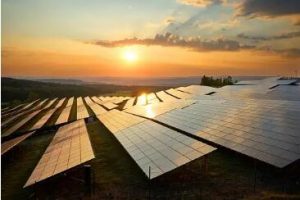
Delays in signing power sale agreements (PSAs) are a bottleneck in the growth of renewable energy capacity in India, dampening investor confidence and threatening the viability of projects, according to a latest study.
PSAs for 19 gigawatt (GW) of capacity tendered by the Solar Energy Corporation of India (SECI) was yet to be signed by state-owned discoms, according to the report by the Institute for Energy Economics and Financial Analysis (IEEFA) and JMK Research.
It further added that manufacturing-linked solar projects accounted for the majority — 63 per cent — of this capacity.
“This situation is having an adverse impact on the morale of project developers and investors and is slowing overall progress on renewable energy installation,” said Vibhuti Garg, co-author, energy economist and India lead, IEEFA.
She added that the missing link of PSAs affected the entire value chain.
“For example, without the assurance of the offtake of power for auctioned renewable energy projects, it becomes virtually impossible for developers to secure debt financing,” said Garg.
The report said that developers with SECI-tendered projects in their pipelines awaiting PSAs included Adani, Azure Power, ReNew Power, and Greenko, which together formed 78 per cent of the total capacity in limbo.
On average, 37 per cent of the entire project portfolios of these prominent developers were SECI-tendered projects with non-executed PSAs, it added. And according to Garg, this significant share of capacity posed a risk to the overall conversion of projects in the pipeline.
Regarding the reason for the discoms’ reluctance to sign PSAs, the study said that falling solar tariffs, driven by declining solar module prices were the key reasons.
“In 2020 we saw solar tariffs hit a record low of Rs 1.99 per unit. Discoms are anticipating that solar module prices will decline further, leading to a reduction in future solar auction tariffs, so they are delaying signing PSAs at higher prices,” said Jyoti Gulia, co-author and founder, JMK Research.
Gulia, however, added that with electricity demand now picking up and the imposition of 40 per cent basic customs duty on solar modules, tariffs were not likely to fall further in the near-term.





